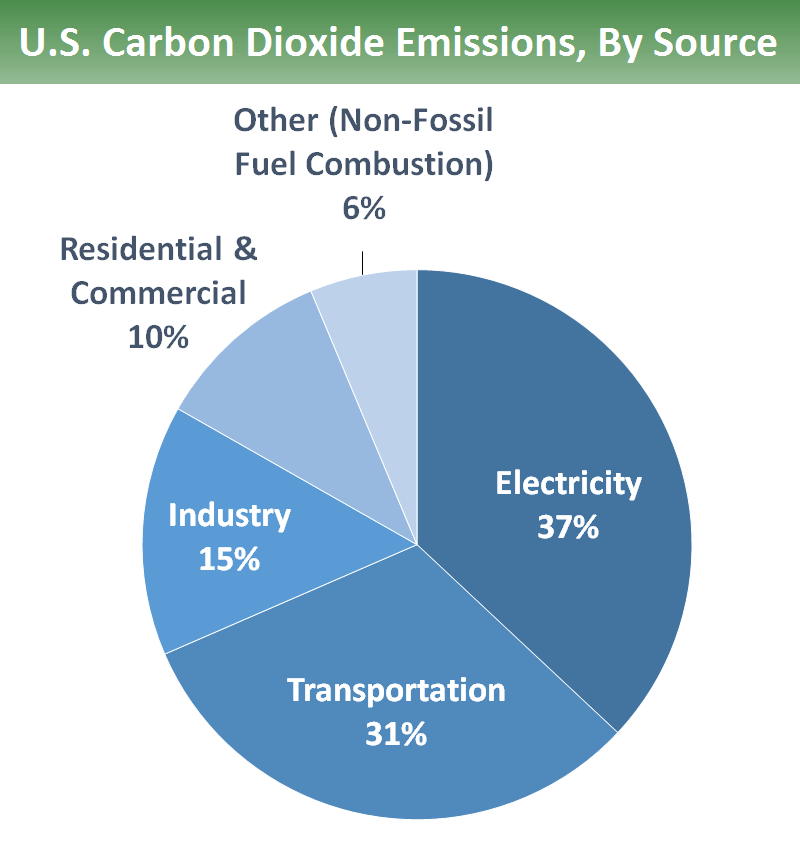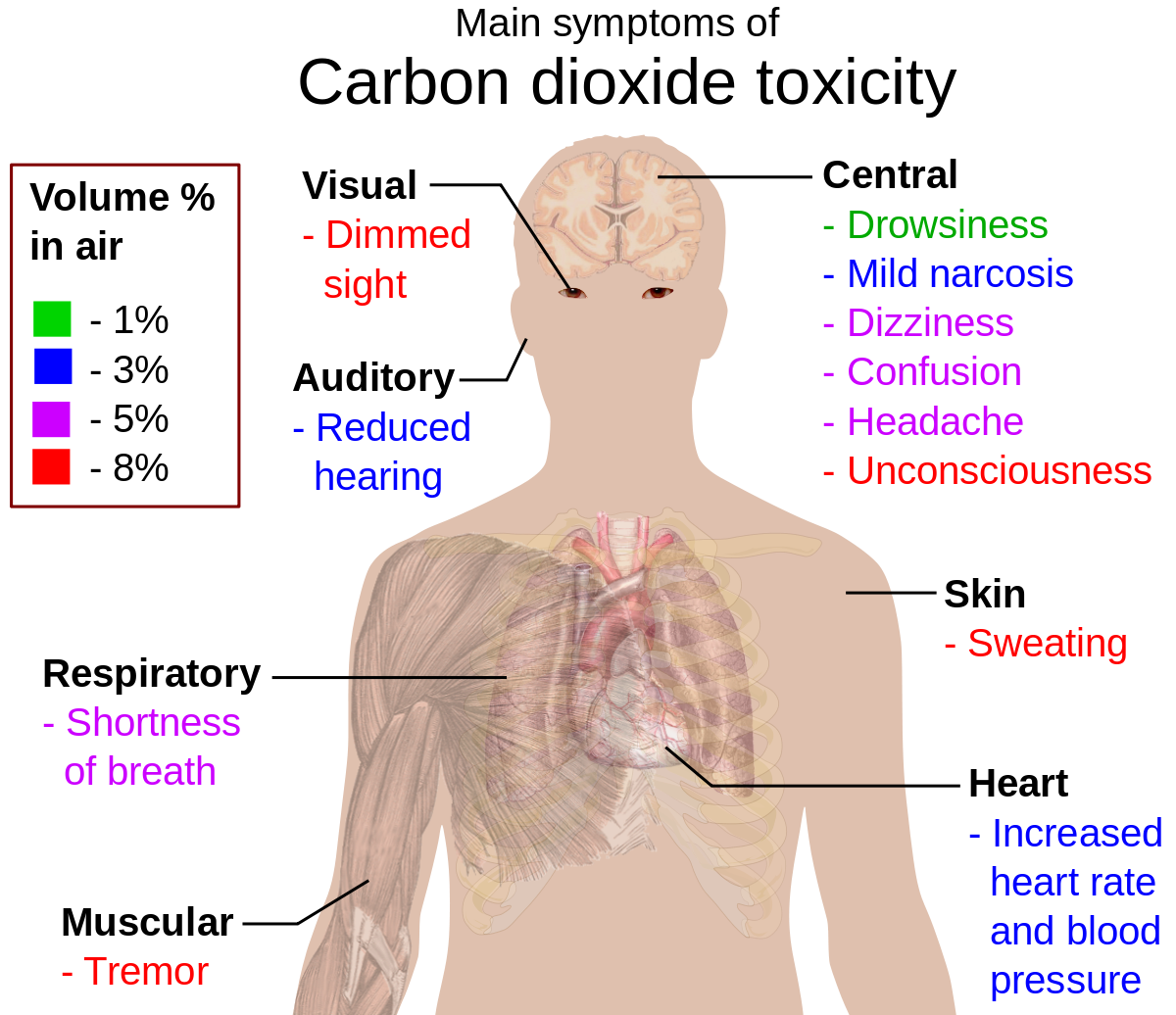I want to talk about the effects of Carbon Dioxide on human health and wildlife. 
Carbon Dioxide- released through various processes like transportation, electricity, industry, and more- poses great threat to human health, and it has recently been discovered that CO2 can contribute to death due to the amount of air pollution it’s responsible for. As told by Liz Kalaugher, an editor for environmentalresearchweb:
“Each degree Celsius rise in temperature caused by increased carbon dioxide levels could cause about 1,000 deaths from air pollution each year in the US”.
I read later in the article that this is because the gas boosts concentrations of surface ozone, particles and carcinogens, which are all detrimental to human health. More evidence proves, and makes logical sense, that the US is a large part of the problem, since it is one of the most industrialized countries. Jacobson, a participant in this research, stated that “More than 30% of these deaths occur in California, which has six of the 10 most polluted cities in the US.” While it’s obvious excess CO2 could not have been good, I didn’t realize just how bad its effects actually are.
Another effect of Co2 is severe smog, which is essentially polluted fog. London, for example, experienced its highest level of smog on January 25th, 2017. I remember I went to London for a school trip during that time, and every morning we woke up to complete fog, some days so bad we’d have to wait until it cleared because the visibility was too bad to drive. I originally thought London is always rainy and this was completely normal, but what I later found out was that it was actually not normal at all. This smog doesn’t just contain harmful particles, it increases number of accidents due to lack of visibility.
There are also many countries which are now facing reduced crop production and major drinking water shortages. Co2 heats up the air, and some crops cannot handle warmer temperatures, leaving them unable to grow and thrive.
According to Renee Cho, the effects of Carbon Dioxide on humans includes health issues, reduced visibility, and less agricultural production, which will lead to a struggling economy.

And while not all effects of Co2 emissions are deadly, that doesn’t mean they’re not debilitating. Some of the non life threatening effects, like those listed in the picture on the left, can still be very detrimental to everyday life.
Now to move onto the effects on wildlife; unless carbon emissions are severely reduced, climate change could result in at least a quarter of land animals, birdlife and plants to become extinct. As CO2 continues to pollute and warm the air, birds will lay eggs earlier than usual, plants will bloom earlier, and mammals will come out of hibernation sooner. As told by the Climate and Weather Organization,
”Distribution of animals is affected; with many species moving closer to the poles as a response to the rise in global temperatures. Birds are migrating and arriving at their nesting grounds earlier, and the nesting grounds that they are moving to are not as far away as they used to be and in some countries the birds don’t even leave anymore, as the climate is suitable all year round.”
Animals have begun adapting to what they think is a new living condition.
Another surprising, yet dangerous effect of the emission on the ecosystem is the alteration to plant life. “The Surprising Role of CO2 in Changes on the African Savanna”, Written by Adam Welz, says rising CO2 levels are creating an abundance of trees in the Savanna. This is called the CO2 Fertilization Effect. I was shocked to learn this, and I think it’s extremely important. Usually when I think about climate change, I think about the effects in has on stunting plant growth, not creating an over abundance of it. Originally I thought this extreme rapid growth was good because more trees means more habitats for animals and more oxygen in the air… all good things, right? No. This has actually proved to cause larger wildfires and alter ecosystems. One example of the ecosystem alteration is the Cheetah, which suffers from not having an empty landscape to search and hunt down prey. If cheetahs can’t hunt their prey, their prey start to overpopulate, and then what they feed on becomes extremely limited, and the whole cycle is messed up.
Every little thing Co2 effects has a much bigger impact than we all think it does. All organisms, humans included, are part of a cycle, and when Co2 impacts just one organism in the chain, it affects the whole thing.